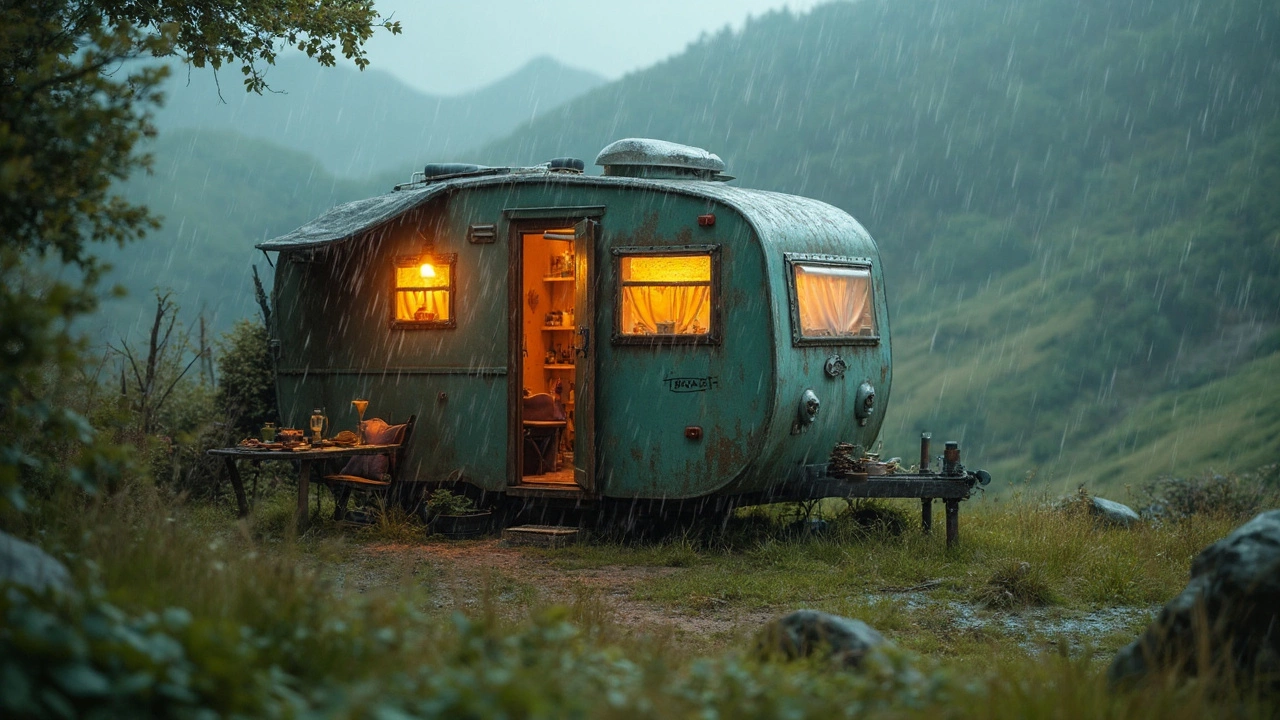Caravan Living: What You Need to Know Before You Hit the Road
If you’re dreaming about waking up by a lake, cooking breakfast in a tiny kitchen and never paying rent again, you’ve landed in the right spot. Living in a caravan or motorhome isn’t just a holiday; it’s a lifestyle that can save money, give freedom, and throw some challenges your way. Below you’ll find straight‑forward advice that cuts the fluff and helps you decide if caravan living is for you.
Pick the Right Home‑on‑Wheels
First off, choose a vehicle that matches your needs. A Class A motorhome offers space and comfort but burns more fuel, while a Class C is more maneuverable and usually cheaper. If you’re only planning weekend getaways, a compact campervan might be enough – just check if it has a proper toilet (many don’t). For full‑time living, look for a layout with a separate bedroom, a decent kitchen, and enough storage for clothes, tools, and the occasional pantry haul.
When you’re shopping, avoid the classic buying blunders: skip the impulse purchase of a flashy model you’ll never use, verify the mileage and service history, and watch out for hidden repair costs. One post on our site, “Top Mistakes to Avoid When Buying an RV,” details these pitfalls, saving you from buyer’s remorse.
Budget Smart – Know the Real Costs
People think a caravan is cheap because there’s no mortgage, but the reality includes fuel, insurance, maintenance, campsite fees, and occasional repairs. Campsite fees can vary widely; a basic pitch might be £15 a night, whereas a luxury glamping site could cost £80. Use our guide “Are Campsites Really Cheaper Than Hotels?” to compare nightly rates and see where you can stretch your pounds.
Don’t forget electricity. Most sites offer hookups, but if you’re boondocking (off‑grid), you’ll need a good battery bank or a portable generator. Our article “How Electricity Powers Campsites” walks you through safe hookups and battery management so you don’t end up in the dark.
Insurance is another hidden expense. Look for policies that cover both road travel and stationary living, especially if you plan to park for weeks at a time. A cheap policy today could cost you big time if you’re not covered during a storm.
Finally, think about daily comforts. A decent shower and toilet set‑up makes a huge difference. If you’re in a campervan, consider a portable toilet with a privacy tent – it’s cheaper than a full RV bathroom and works fine for short trips. Our piece “Do Camper Vans Have Toilets?” explains the options.
Living in a caravan can feel like a constant adventure, but a bit of planning keeps it from turning into a headache. Check out our “Luxury Camping Experience” post if you crave a bit of glamping comfort while on the road – many sites now offer hot showers, Wi‑Fi and even chef‑prepared meals.
Ready to start? Begin by listing your must‑haves, setting a realistic budget, and reading the relevant guides on our site. Whether you end up buying a full‑size motorhome or renting a campervan for a season, the freedom of caravan living is yours to enjoy.
Disadvantages of Living in a Caravan You Should Know
Living in a caravan can sound adventurous and freeing, but it comes with its share of challenges. Limited space, lack of privacy, and maintenance issues are just a few hurdles residents often face. Additionally, the lifestyle might involve dealing with fluctuating weather conditions and unstable living costs. Understanding these factors can help make an informed decision about embracing this lifestyle.
